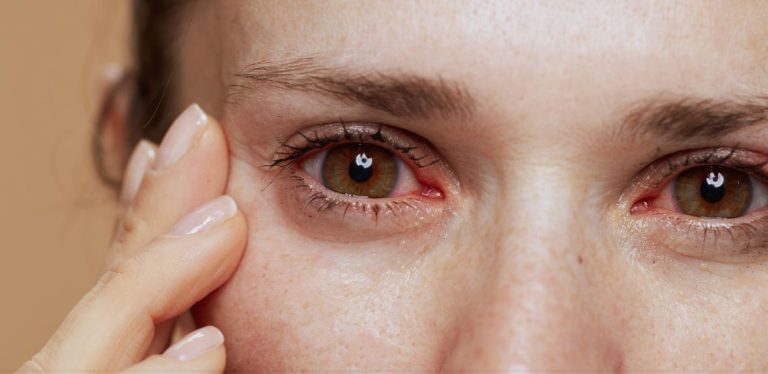Keeping Up With Eye Health
When your eyes don’t have enough moisture, you can start to notice some signs that something is wrong. To help, there's Cequa, a prescription eye drop used to treat dry eye disease by increasing tear production.
8 Signs of Dry Eye
1. Itchy Eyes
One of the first signs of dry eye is itching. You may feel the urge to rub your eyes a lot because they feel uncomfortable. This itching can happen at any time, but it may get worse in certain environments, like in a dry or windy place. Itchy eyes are more than just annoying—they can also make your eyes feel sore if you rub them too much.
2. Redness
Another common sign of dry eye is redness. Your eyes might look bloodshot, as if you’ve been crying or are very tired. Red eyes can make you feel self-conscious because they can be very noticeable. This redness happens because your eyes are irritated and lacking the moisture they need to stay healthy.
3. Burning Sensation
If your eyes feel like they’re burning, this could be another sign of dry eye. Some people describe it as a stinging feeling that makes them blink more or rub their eyes. The burning sensation can get worse after spending a lot of time reading, watching TV or using a computer.
4. Watery Eyes
It may seem strange, but watery eyes can actually be a sign of dry eye. When your eyes are too dry, they can overcompensate by producing more tears than usual. These extra tears, however, aren’t always the kind your eyes need. Instead of soothing your eyes, the watery tears might just run down your cheeks and make things worse.
5. Blurry Vision
When your eyes are dry, your vision can get blurry. It may feel like your eyes can’t focus well, and your vision may go in and out of focus throughout the day. This can make everyday activities like reading or driving difficult. Blurry vision due to dry eye can be frustrating and even dangerous if it happens at the wrong time, like when you're driving.
6. Sensitivity to Light
If bright lights suddenly feel too strong, this could be another sign of dry eye. You might find yourself squinting more than usual or closing your eyes when you step outside or turn on a bright light. Light sensitivity can make being in certain environments uncomfortable and may limit your activities.
7. Feeling Like Something is in Your Eye
Another sign of dry eye is the feeling that something is stuck in your eye. It can feel like there is dirt or grit in your eyes, even when there is nothing there. This sensation can be very uncomfortable and make you want to rub your eyes constantly, but this can make the problem worse by causing more irritation.
8. Tired Eyes
Dry eye can make your eyes feel very tired. They may feel heavy, like you need to close them and take a break. This tiredness often gets worse after reading, working on a computer or watching TV. Your eyes are working harder than usual because they are dry, and this can lead to eye strain.
Treatments for Dry Eye
If you experience some of the signs of dry eye, don’t worry—there are treatments that can help relieve the symptoms and make your eyes feel better. Here are some common treatments for dry eye:
- Artificial tears: These are over-the-counter eye drops that add moisture to your eyes. You can use them throughout the day whenever your eyes feel dry. They’re especially helpful if you spend a lot of time in front of a computer or in a dry environment.
- Warm compresses: A warm, damp cloth placed over your eyes can help reduce irritation. The warmth helps to unblock any oil glands around your eyes that may be causing dryness.
- Blink more: Believe it or not, many people don’t blink enough, especially when they’re using a computer or reading. Make a conscious effort to blink more often, as this helps spread moisture across your eyes and keeps them from drying out.
- Humidifier: If the air in your home is very dry, a humidifier can help add moisture to the air. This can make a big difference if you spend a lot of time indoors, especially during the winter when the air is naturally drier.
- Prescription medications: If over-the-counter treatments aren’t helping, your doctor may prescribe special eye drops or medications to increase tear production. In some cases, there are also small devices that can help keep your eyes moist by blocking tear drainage.
Cequa
Cequa is a prescription eye drop specifically designed to treat dry eye disease, a condition where the eyes don’t produce enough tears or the tears evaporate too quickly, leading to discomfort and vision problems. The active ingredient in Cequa is cyclosporine, which works by reducing inflammation in the tear glands, allowing them to produce more tears.
Cequa is unique because it uses a special formula called nanomicellar technology, which helps deliver the medication effectively to the surface of the eye, improving absorption and reducing irritation. It is typically used twice daily and can take several weeks to show significant improvement in dry eye symptoms.
Managing Dry Eye
By paying attention to these signs and trying some of the treatments, you can manage dry eye and keep your eyes healthy and comfortable. If the symptoms persist or worsen, it’s important to see a doctor to get the right treatment plan.
Read on to learn about the signs of ITP.
